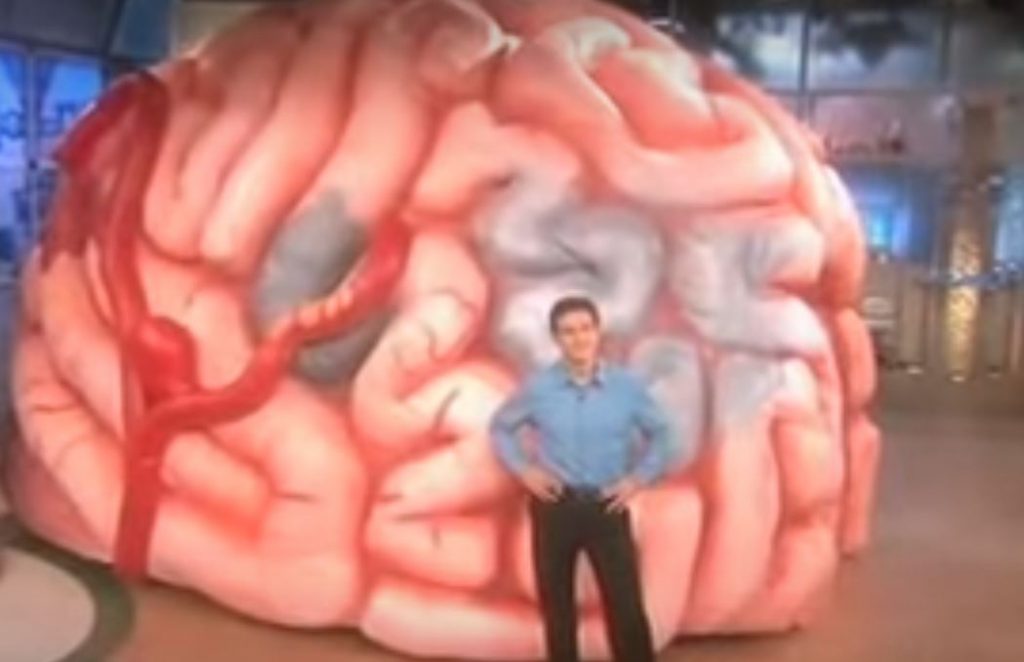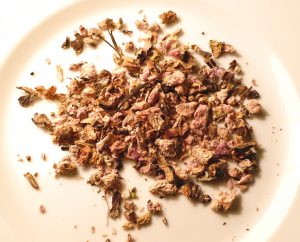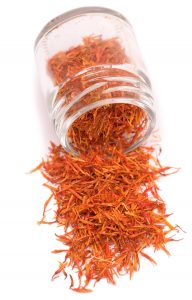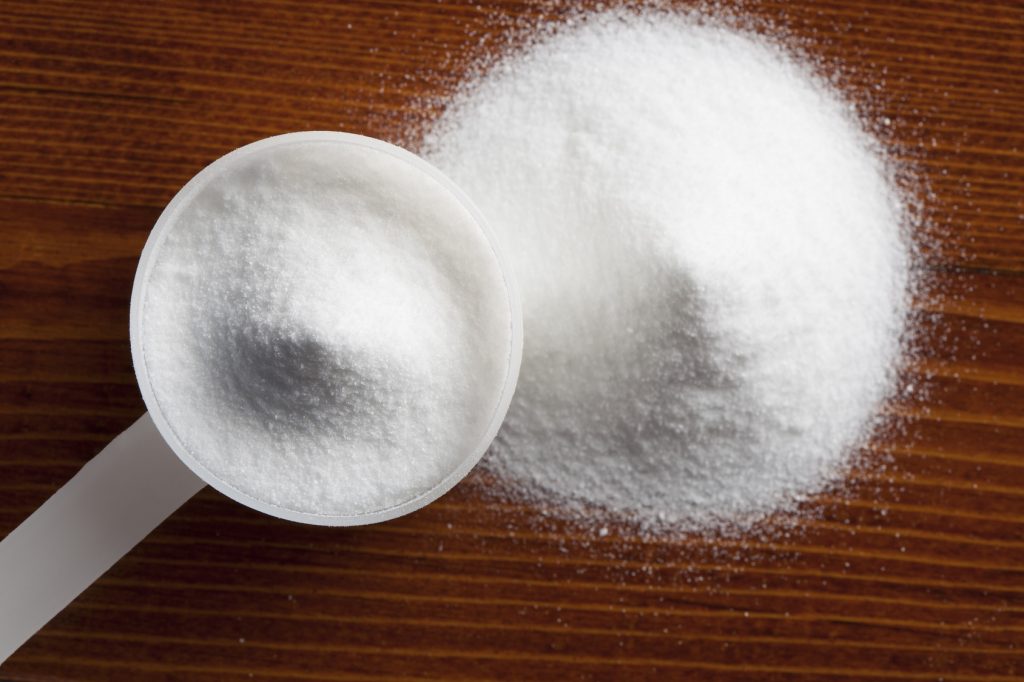 Oz. You know him. You love him. (or not).
Oz. You know him. You love him. (or not).
If you read our earlier piece on The Oz Effect, you may have been surprised to see SiR actually defending the doctor against recent criticism.
We said it then, we’ll say it again: Dr. Oz ain’t all bad… but it’s always a good idea to fact-check what he says, especially his “miracle claims” on nutritional supplements.
So when it comes to Dr. Oz discussing brain supplements in particular, is he full of you-know-what, or what?
You’re in luck: For Dr. Oz brain supplements, we’ve done the fact-checking for you.
Following are 10 brain supplements and nootropics (brain-boosters) that have been mentioned on the Dr. Oz show, what he and his guests said about those nutrients, and if their positions check out.
10 Dr. Oz Brain Supplements, Fact-Checked
L-Theanine
Claim: In separate Dr. Oz episodes, guests Dr. Daniel Amen and Dr. Sanam Hafeez touted L-Theanine as a valuable brain supplement. After demonstrating how to unleash the power of the female brain, Dr. Amen included L-Theanine in a list of supplements that “help you optimize your brain and increase your overall health.”
Dr. Sanam Hafeez also stated that L-Theanine combined with caffeine boosts focus:
[…]in combination, in high dosages, they do promote attention. Very specifically visual attention.”
![Green tea, shown growing on a farm in Korea, is a rich natural source of L-Theanine. By by Fred Ojardias (http://flickr.com/photos/fredcoree/279595783/) [CC BY 2.0], via Wikimedia Commons](https://supplementsinreview.com/wp-content/uploads/2016/06/Korea-Boseong-Green.tea-01-1024x768.jpg)
In 2008, researchers found that 50 mg of L-Theanine significantly boosted alpha brainwaves—a frequency of electrical impulses in the brain associated with relaxation without sedation:
- In regards to attention, an earlier study evaluated these alpha effects by analyzing 168 individuals through EEG testing. In conclusion, L-Theanine supplementation seemed to enhance attention-related functions.
Additionally, L-Theanine reduced stress both psychologically and physiologically—one double blind study recorded lower heart-rates and reduced salivary stress markers during academic testing simulations.
Dr. Amen focuses on female brainpower in his claim, but L-Theanine doesn’t gender-discriminate. On its own, the amino acid has shown to enhance alertness while reducing stress and anxiety.
Combined with caffeine, L-Theanine is believed to inhibit the “jittery” side effects of caffeine without compromising the increased alertness. That explains why the caffeine in green tea feels cleaner than a cup of Joe.
Rhodiola rosea

Evidence: Grown in the cold, high-elevation regions of the world, Rhodiola rosea has been used for centuries to cope with the stressful life of low temperatures and high altitudes.
Anecdotally, rhodiola seems effective in combating brain fog, reducing stress and improving mood — however, the actual human research is somewhat contradictory:
- A systemic review searched rhodiola health literature for randomized controlled trials and controlled clinical trials. Two reviewers independently assessed the articles on their risk of bias. Of the 11 articles that met the reviewers’ criteria, all of the studies exhibited risk of bias or reporting flaws.
Though bona-fide science is lacking, claims for rhodiola’s brain-enhancing effects are supported by longstanding tradition and an outstanding reputation as an “adaptogen” herb.
Sage Oil
Claim: In one show, Dr. Oz offered tips on how to “make your brain younger” (10 years younger, to be exact). According to Oz, sage oil (Salvia officinalis) turns the brain-clock back as it:
helps protect neurotransmitters. […] Always been reputed to help memory, but now we actually got proof for it.”
He recommends sage oil only if you have memory issues.
Evidence: In 1597, John Gerarde’s The Herball or Generall Historie of Plantes (1597) said of the herb: “Sage is singular good for the head and brain; it quickeneth the senses and memory.” We could leave it at that, but this was also back when doctors cut holes in people’s skulls to release evil spirits trapped in their brains……
![Common sage. By Badagnani (Own work) [GFDL or CC BY 3.0], via Wikimedia Commons](https://supplementsinreview.com/wp-content/uploads/2016/06/Common_Sage_1-1024x768.jpg)
One clinical trial assessed the memory enhancement effects of sage oil on healthy young volunteers through word recall tests. Compared to a placebo group, sage oil showed “improved immediate word recall.”
- Animal research suggests that sage potentiates the memory retention process by indirectly promoting acetylcholine activity (neurotransmitter that promotes neural connectivity).
Bacopa Monnieri
Claim: Guest Dr. Sanam Hafeez explained to Dr. Oz that Bacopa Monnieri:
…increases memory. But when you look at the research, it actually decreases forgetfulness instead of increasing memory, which is an important distinction to make.”
Evidence: Known in India’s Ayuverdic medicine as the “Herb of Grace,” Bacopa was a subject of spiritual reverence in early Indian culture. Modern research seems to only validate Bacopa’s long-held associations with increased memory and brainpower.
Animal research suggests that Bacopa’s bio-active nootropic ingredients (called bacosides) might:
- Increase cerebral blood flow
- Reduce stress
- Alleviate short-term memory loss
- Have antioxidant effects
- Improve acquisition and retention of information
- Have anti-depressant effects
- Block brain plaque
One human study administered Bacopa to 76 participants aged between 40 and 65 for six months. Cognitive performance testing showed that Bacopa significantly improved the retention of new information when compared to the placebo group—however, learning rates were not affected.
- The researchers concluded that the herb seemed to “decrease the rate of forgetting newly acquired information.”
Saffron

Claim: Saffron extract (as a patented form called Satiereal®) is included in Dr. Amen’s list of supplements for optimizing your brain and increasing your overall health.
Evidence: Typically used as a spice in foods, saffron has a long history of medicinal value. From treating eye problems to depression, saffron has many traditional uses.
In a systematic review, researchers concluded that saffron may help with:
- Depression
- Premenstrual syndrome
- Sexual dysfunction and infertility
- Excessive snacking behaviors
All of which may or may not optimize brain health.
DHA Supplements
Claim: In the episode titled “Memory Cure” Dr. Oz brought on guest Dr. Majid Fotuhi to demonstrate “the miracle plan” towards preventing Alzheimer’s. The supplement claimed by Dr. Fotuhi to help accomplish this is DHA (docosahexaenoic acid):
DHA improves blood flow to the brain, reduces inflammation, and it actually reduces the plaques that have been associated with Alzheimer’s disease.”
After which, Dr. Oz added:
Of all the supplements I have ever talked about on this show, the most important by far is DHA omega-3s.”
Evidence: DHA is an omega-3 fatty acid that keeps brain cell membranes healthy, yet declines with age. In a prospective study, researchers tracked 899 men and women with an average age of 76 for nine years. Those who had the highest blood levels of DHA appeared to slash their risk of all-cause dementia by 47%.
Dr. Oz is a self-proclaimed raving fan of Omega-3s (which include DHA). You can see his enthusiasm about Omega-3 for memory in this short clip:
So, does supplementing DHA really slow mental decline?
Preclinical animal research shows that DHA can potentially alleviate artificially-induced Alzheimer’s in mice. But this doesn’t translate well into human models:
The first large-scale human study conducted an 18 month placebo-controlled treatment of DHA supplementation among a total of 402 individuals with mild to moderate Alzheimer’s (295 participants completed the study).
- After 18 months, the researchers concluded that “DHA supplementation is not useful for the population of individuals with mild to moderate Alzheimer’s.”
Vitamin B-12
Claim: Listed as one of the “Keys to Keeping Your Brain Young” (as the episode segment was called), Dr. Oz claimed that:
Vitamin B-12 may protect against Alzheimer’s. B-12 is particularly rare and problematic in older folks because you don’t absorb it normally.”
Dr. Oz references a “brand new study” from the Journal of Neurology preceding the statement.
Evidence: Dr. Oz doesn’t mention which “brand new study” made this claim. However, during the same year (2010), one trial showed that vitamins B-6 and B-12 slowed brain atrophy in elderly with mild cognitive impairment. Knowing that brain shrinkage is an indicator of Alzheimer’s, the researchers thought they found a potential Alzheimer’s prevention.
Unfortunately, another study showed that vitamins B-6 and B-12 were not proven to slow mental decline. Alzheimer’s disease prevailed, despite the slower brain atrophy.
The finding that vitamins B-6 and B-12 possibly prevent brain shrinkage is exciting and warrants additional research. In many other ways, the vitamins offer brain healthy support.
Creatine
Claim: Guest Dr. Sanam Hafeez suggested to Dr. Oz:
Creatine has been shown to increase some cognitive functioning. But when you look at the research, it’s done more on, let’s say, sleep-deprived or the elderly, so it doesn’t necessarily translate to people like you [Oz] and me.”

Evidence: Commonly used to enhance fitness performance, creatine is a non-essential organic acid that helps supply energy to all body cells—primarily muscular tissue. The logic follows that an overall energy increase would also benefit brainpower. Three studies stand out on the discussion:
- One small placebo-controlled study examined the effect of creatine on sleep-deprived individuals. The researchers concluded that creatine supplementation had a “positive effect on mood state and tasks that place a heavy stress on the prefrontal cortex” in the context of sleep-deprivation.
- Another study found similar results for the elderly who underwent memory tests following creatine or placebo administrations. Creatine supplementation was concluded to “aid cognition in the elderly.”
- A negative study reported that six weeks of creatine supplementation (0.3/g/kg/day) “does not improve cognitive processing and psychomotor performance in non-sleep deprived young adults.”
Blueberry Concentrate
![By Jim Clark ([1]) [CC BY 2.0], via Wikimedia Commons](https://supplementsinreview.com/wp-content/uploads/2016/06/Blueberries_on_branch-266x300.jpg)
Blueberries have earned an impressive reputation as a superfood because they are a great source of antioxidants, and they’ve also been proven to enhance memorization skills.”
Especially for older adults at risk for dementia.
Evidence: A recent study investigated whether 12 weeks of blueberry concentrate supplementation improved brain activation and brain perfusion (blood flow to the brain) in 26 healthy elderly participants:
- Working memory improved after supplementation when compared with the placebo group. The data suggested that blueberry concentrate “improves active brain areas associated with cognitive function and brain perfusion in healthy elderly participants.”
One explanation for this lies in pterostilbene—a neuroprotective antioxidant found in blueberries. Animal research suggests that pterostilbene might improve brain cell survival, anxiety disorders, and brain plasticity (strength of neural pathways)—however, it’d take a lot of blueberries to achieve these effects.
Despite sparse data on human intervention studies, blueberry’s “impressive reputation as a superfood” seems to check out. Long-term improvements or recoveries in memory have yet to be found, but the enhanced working memory is a hopeful positive.
Ashwagandha
Claim: Guest Dr. Sanam Hafeez claimed that ashwagandha was supported by “good” research:
[Research] showed that it reduced blood cortisol serum levels, which in turn reduces your response to stress and anxiety. So, the less anxious you are, the less stressed you are, the more able you are to focus.”
Evidence: Ashwagandha is a powerful herb in Ayurvedic medicine. Known as “Indian ginseng,” ashwagandha is used as an “adaptogen” to help the body adapt to daily stressors.
Modern research validates its anti-stress value:
A double-blind, placebo-controlled study gathered 64 participants with histories of chronic stress to assess ashwagandha’s anti-stress, anti-anxiety abilities. Serum cortisol and self-assessed questionnaires were measured before and after the trail period.
- Researchers concluded that ashwagandha “safely and effectively improves an individual’s resistance towards stress and thereby improves self-assessed quality of life.”
Aside from its numerous associated health benefits, ashwagandha appears to be an effective anti-stress brain supplement.
Conclusion
Out of the 10 Oz brain supplements and nootropics evaluated in this article, most of them check out. Where Dr. Oz gets in trouble once again seems to be over-exaggerating their benefits, especially in the context of serious brain health concerns.
- This highlights an important aspect of Oz’s controversy—it isn’t necessarily what he claims to be healthy, but how he makes those claims.
When approaching heavy health conditions such as Alzheimer’s, dementia, or others, it’d be wise for Oz to refrain from the words “miraculous”, “magic”, or “cure.” This issue isn’t a matter of semantics as much as it’s misguiding and exploitative, even if the product is beneficial.
On our end, it’d also be wise to fact-check or avoid proclaimed “miraculous, magical cures.”
Don’t be jaded on the doctor. He does promote healthy brain supplements. The key seems to be taking the time to fact-check… which will help you recognize the difference between hype and fact when it comes to Oz’s extravagant claims.
Interesting article. I ordered FOCUS extra strength advanced nootropics. I understand Dr. OZ does not recommend certain products. It comes from Davie, Florida. How do I find out if this product is legitimate and I should go ahead and take it. My age is 85, health very good. Am taking Vit B-Complex, COQ10, Garlic, Magnesium, Omega-D3. Thank you